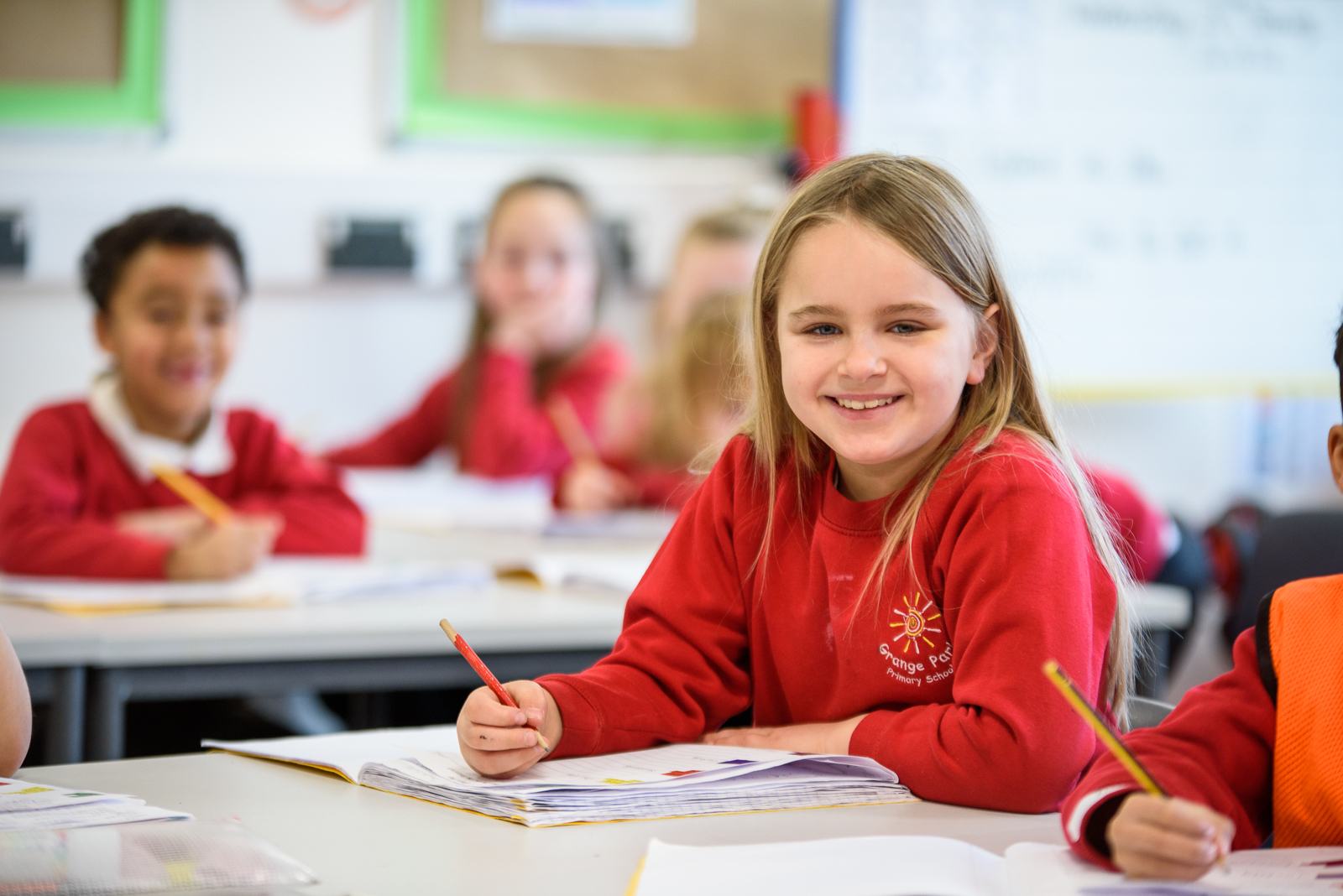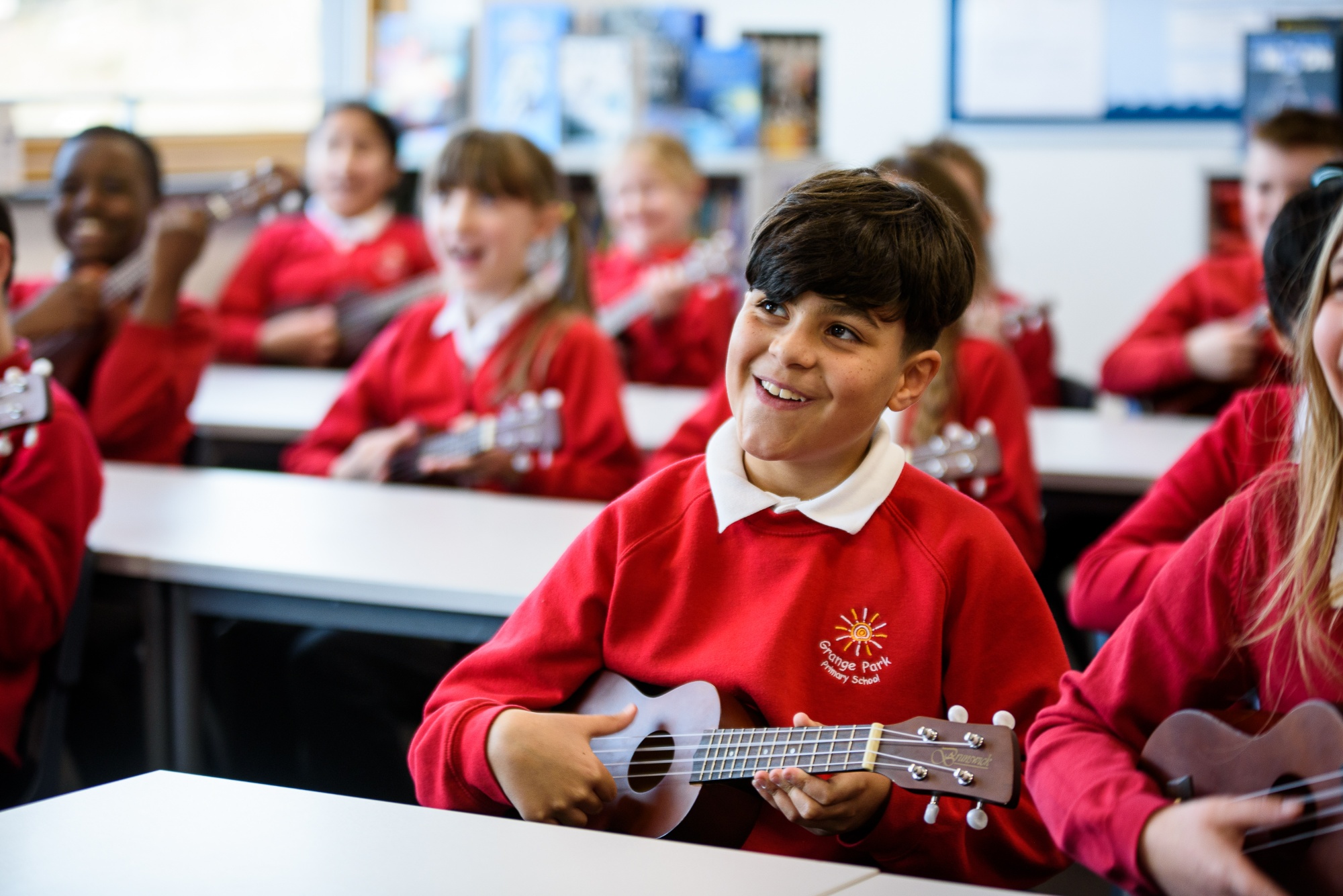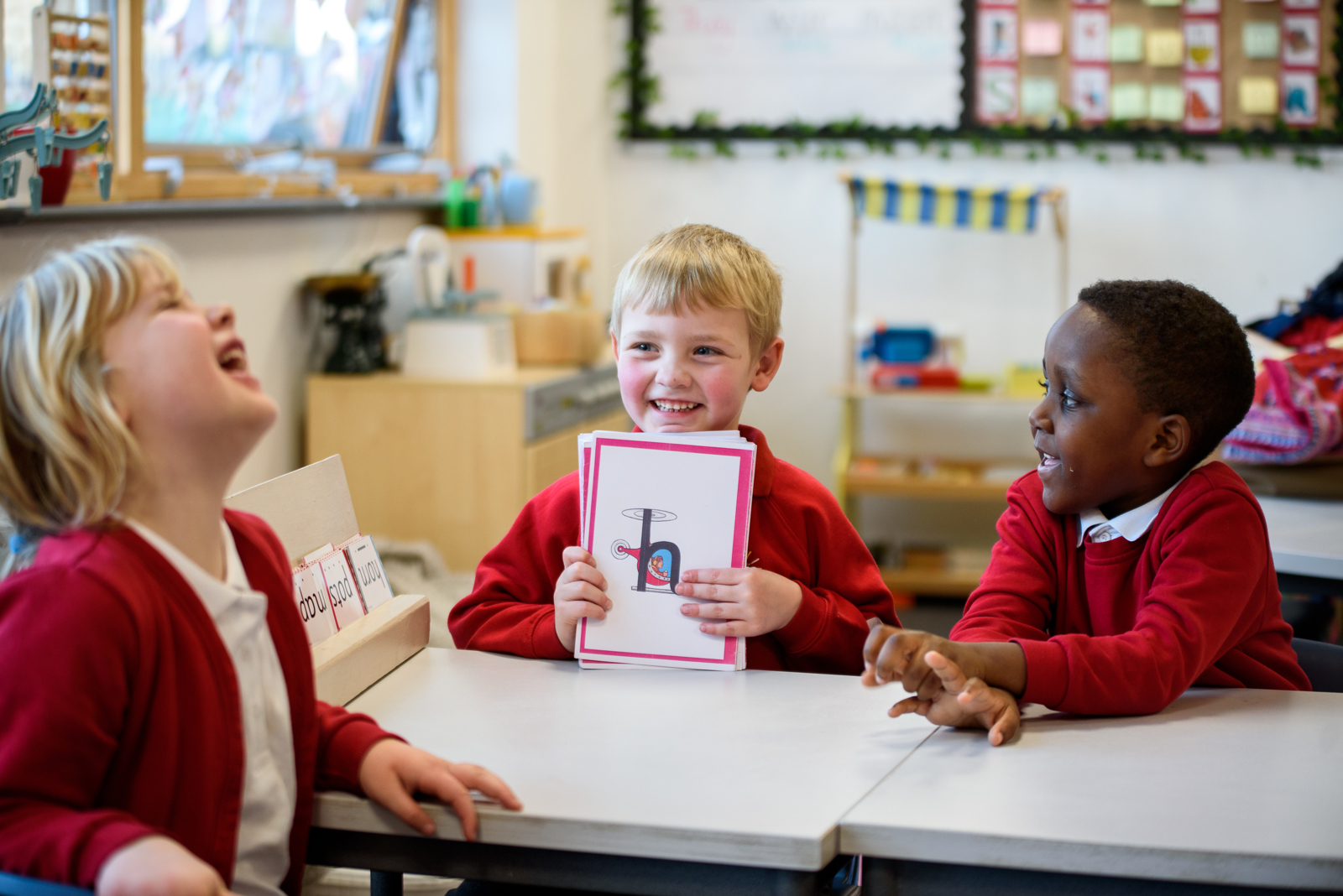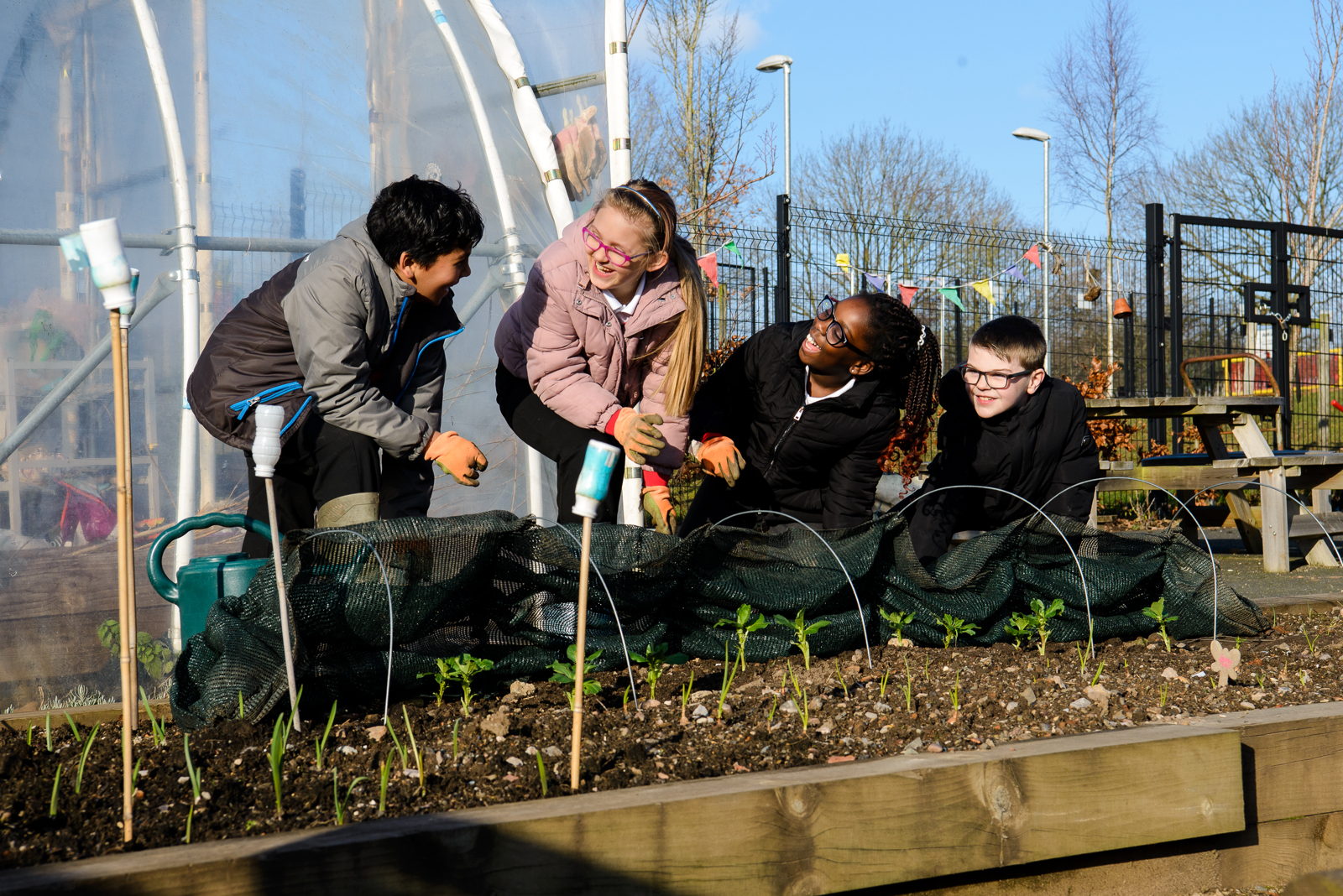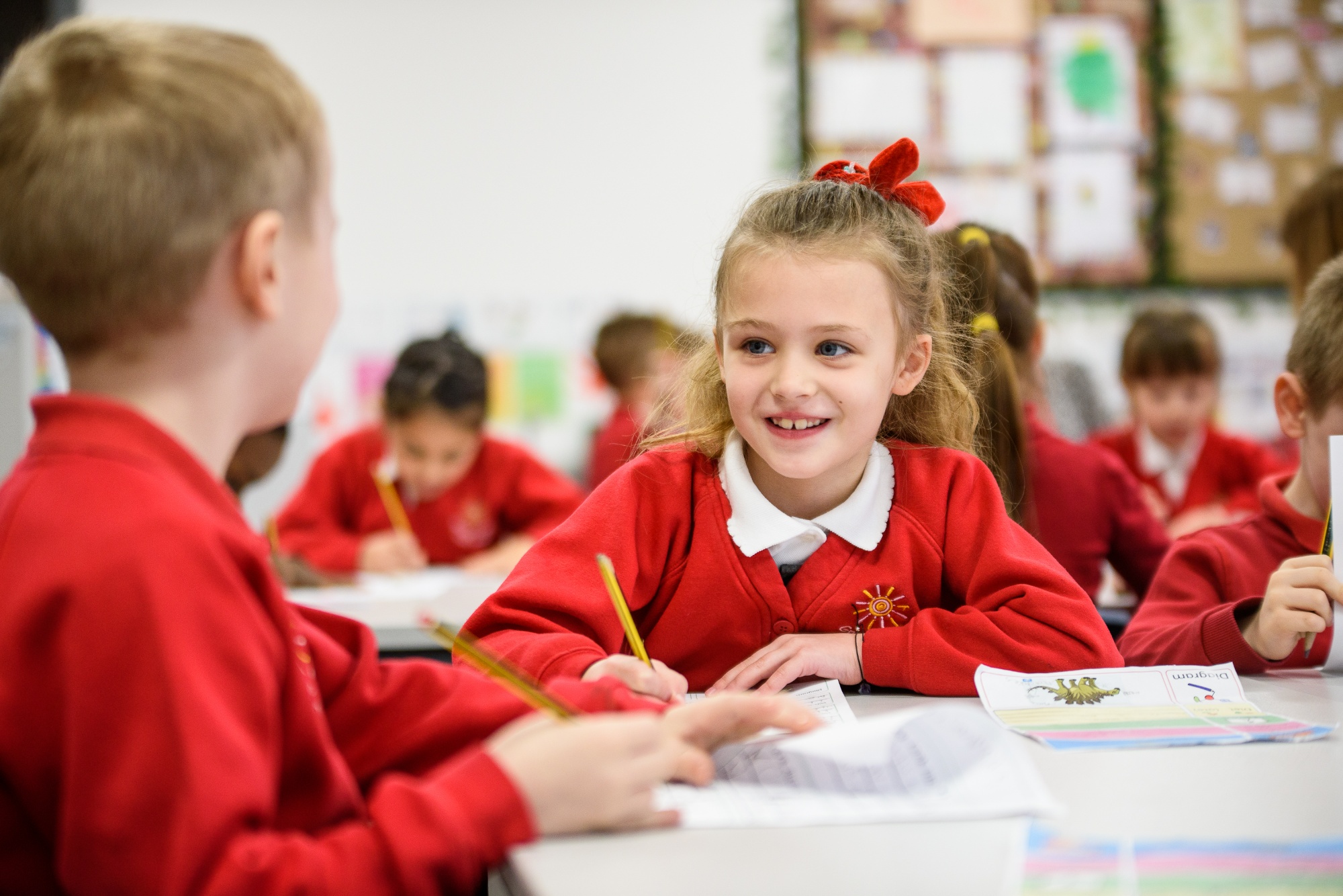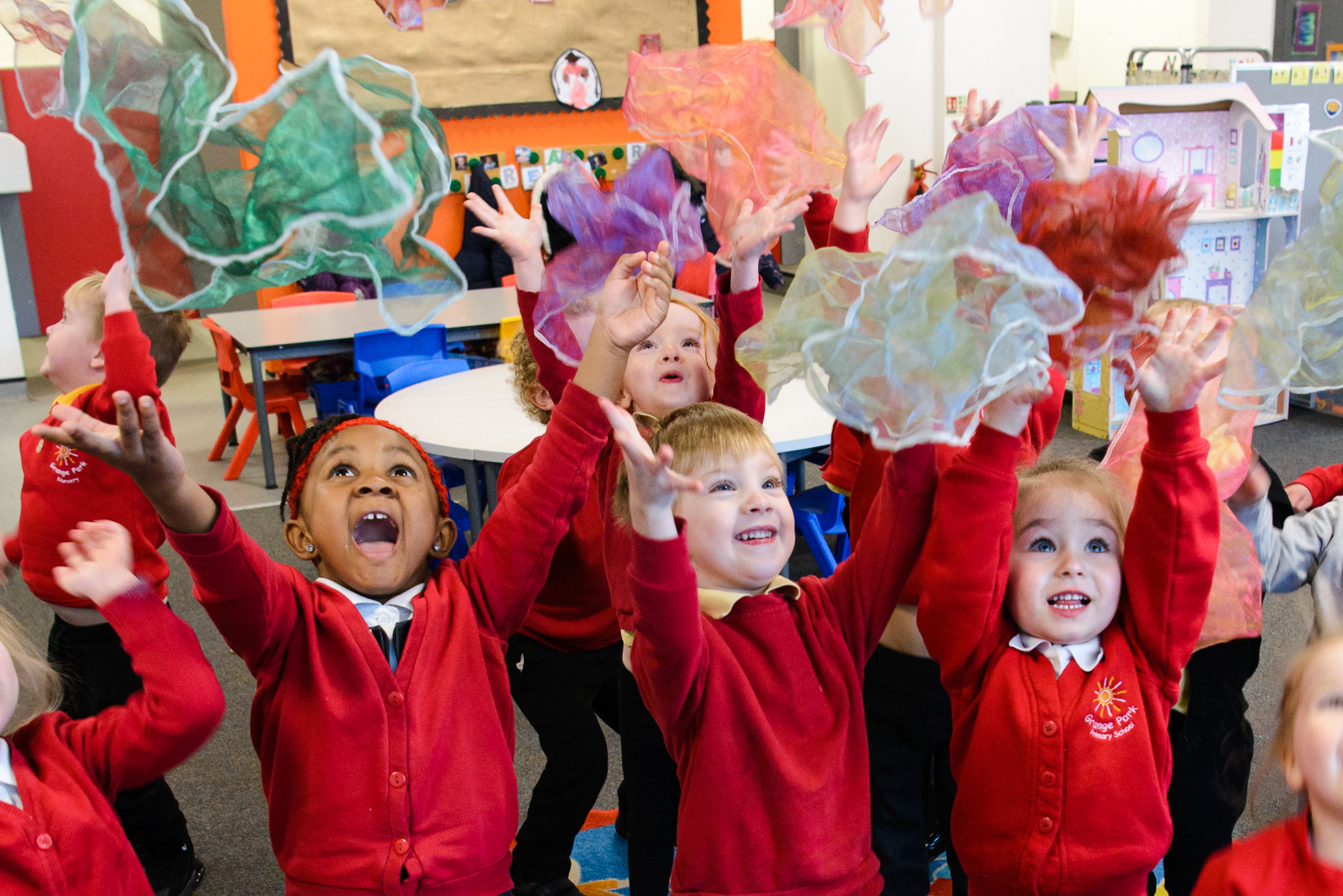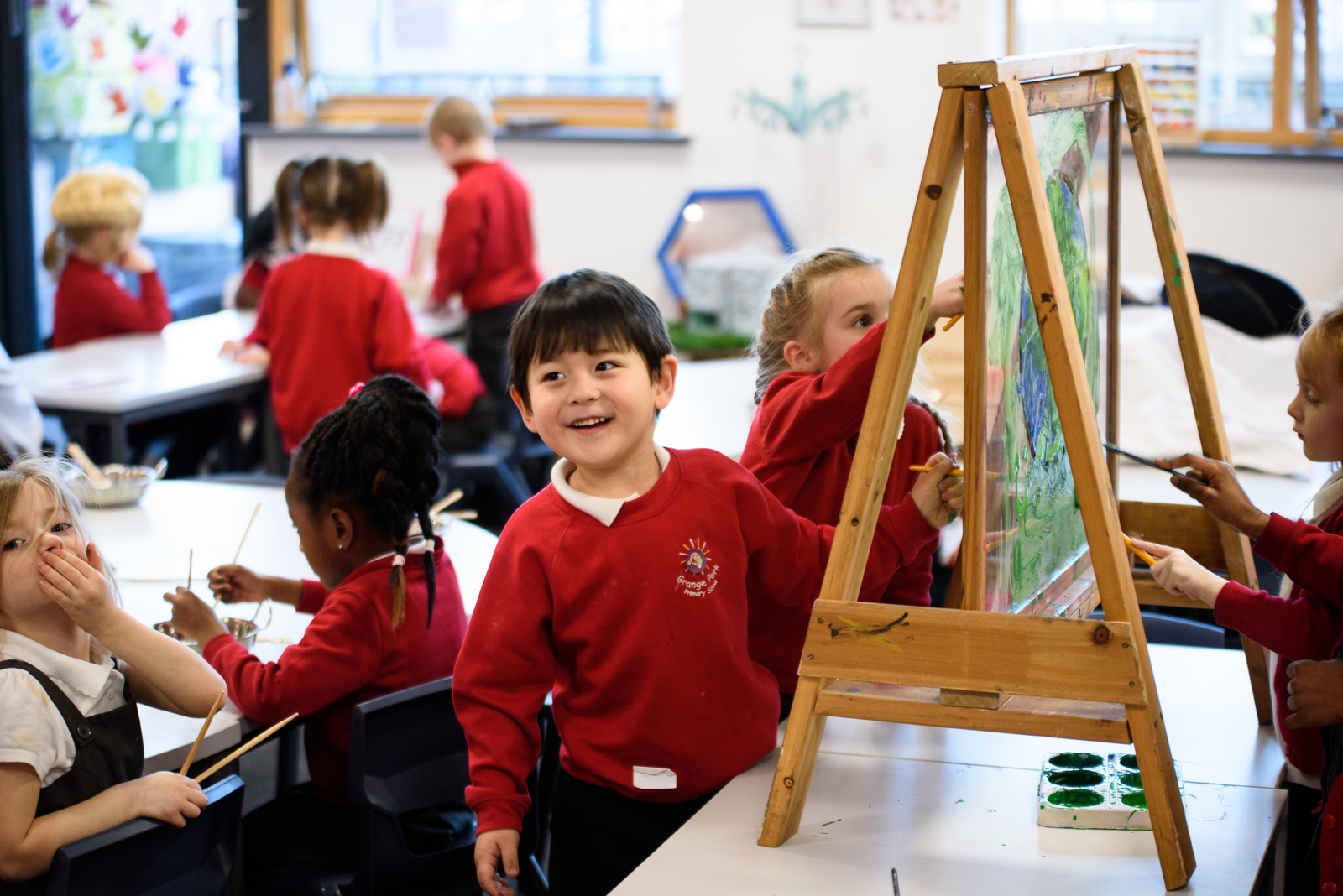Writing at Grange Park
Intent
At Grange Park, we believe that a high-quality English curriculum is crucial in order to access all areas of the wider curriculum. Through our thematic approach across the children’s time at Grange Park, they will experience a wealth of high quality fiction and non-fiction texts (as well as poetry). This immerses them in a high-quality education which supports them to read and write fluently from a young age. Our overarching objective is inclusivity. We want all of our children to be fluent writers who have developed a breadth of vocabulary within their own spoken language. It is vital that our children learn discrete writing skills in a progressive sequence, ensuring that their transcription is fluent, which will ensure that children can spend more time thinking about the content of their writing and constructing effective sentences. Through carefully planned writing sequences alongside discrete VGPS lessons, children are taught the spelling, grammar and punctuation that is expected for their age. They are also exposed to a variety of different text types within both their reading and writing to prepare them for writing for a variety of purposes and audiences. By integrating the teaching of reading and writing, we aim to equip our students with an understanding of how their writing can influence and engage their intended audience.
Implementation
Early reading and writing are supported by ‘Little Wandle’ for ‘Letters and Sounds Revised’. By providing all staff across the school with regular professional development, this ensures that our teaching and learning approaches are consistent to enable children to make excellent progress in phonics. To support children in their writing, a carefully planned sequence of lessons (The Place value of Punctuation and Grammar) enables children to focus on vocabulary, grammar and punctuation and spelling, which they are then able to apply during independent writing opportunities. Children have the opportunity to write for a range of purposes to develop their skills as fiction and non-fiction writers. Children begin their sequence of learning by being immersed in the writing and text type. This may include looking at the features of a text and gaining the relevant information to be able to write about a subject successfully. They will then gather vocabulary which will support them in their writing through looking at example texts and through teacher input. Children will then plan their writing, understanding how to organise their thoughts to have the most desired impact on the reader. When children have gathered an understanding of all of this, they will be able to draft their writing independently, with teachers providing feedback verbally and through marking. When children have drafted their writing, they will gain feedback from their peers and teaching staff, encouraging them to take the necessary steps to ensure that they are proud of their final draft.
Their writing takes on many forms and they are encouraged from an early age to review the successes of their own writing and to make regular improvements (using purple pens)to their own work and to the work of their peers. Handwriting is taught regularly
Impact
As a result of high-quality English teaching and learning at Grange Park, our children make good progress. They are able to talk about their own writing and the various forms, purposes and impact that their writing may have. Their independent writing will also include the grammar, punctuation and spelling skills that have been taught as part of their sequence of learning. Children will be able to apply these skills across all curriculum subjects. Children will also have a wide range of texts and authors/poets that have been shared with them throughout their learning journey, as well as visits from local authors. Throughout the school year, children are regularly assessed against the National Curriculum to ensure that improvements to writing are identified. Through our half-termly pupil progress meetings, those children who need additional support with writing are identified quickly by teaching staff and measures are put in place to deliver precision interventions so that all children make good progress.


